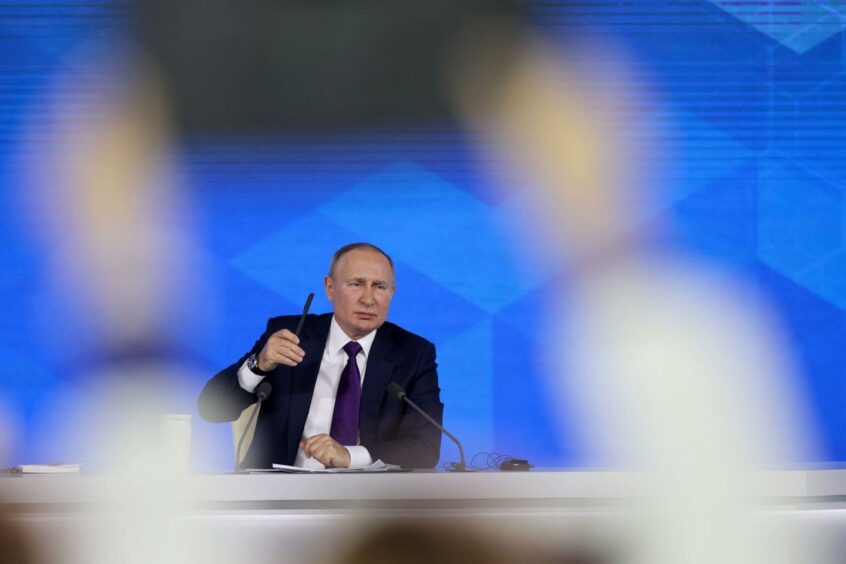
Oil soared at the open as energy and commodity markets were thrown into a state of disarray after Western nations unleashed more sanctions to isolate Russia following its invasion of Ukraine.
West Texas Intermediate and Brent rose more than 7% in early trading before pulling back slightly. The US and its European allies agreed over the weekend to exclude some Russian banks from the SWIFT bank messaging system and targeted the central bank’s foreign reserves. BP Plc also moved to dump its shares in Rosneft PJSC, taking a financial hit of as much as $25 billion.
Russia’s attack on Ukraine has roiled markets from energy to metals and grains, heaping more inflationary pressure on a global economy already hit with surging costs. At least two of China’s largest state-owned banks are restricting financing for purchases of Russian commodities, underscoring the limits of Beijing’s pledge to maintain economic ties with one of its most important strategic partners in the face of Western sanctions.
Global oil output is already struggling to meet the demand rebound fuelled by the reopening of economies, and any disruptions to flows from Russia — the world’s third-largest oil producer — could sharply exacerbate the tightness. Buyers including China have paused purchases of Russia’s flagship Urals grade, while production from two Iraqi fields with a combined capacity of almost half a million barrels a day has halted.
“Removing some Russian banks from SWIFT could result in a disruption of oil supplies as buyers and sellers try to figure out how to navigate the new rules,” Andy Lipow, president of Lipow Oil Associates in Houston, said in a note.
Against this volatile and fast-moving backdrop, OPEC+ faces a trickier task than usual when it meets Wednesday to discuss its production policy for April. The International Energy Agency has pledged to help ensure global energy security, while India said it would support initiatives to release emergency oil reserves.
Prices
WTI for April rose 5.4% to $96.53 a barrel on the New York Mercantile Exchange at 8:20 a.m. Singapore time.
Brent for April settlement, which expires Monday, advanced 5.1% to $102.88 a barrel on the ICE Futures Europe exchange.
The more-active May contract jumped 5.4%.
The surprise move by BP is the latest sign of how far the West is willing to go to punish President Vladimir Putin for his invasion of Ukraine. The oil major has been in Russia for three decades and just weeks ago was staunchly defending its presence there.
Societe Generale SA and Credit Suisse Group AG stopped financing commodities trading from Russia, according to people familiar with the matter. The two banks, key financiers to commodity trading houses, are no longer providing the money needed to move raw materials such as metals and oil from Russia.
Russia is the world’s third-largest oil producer behind the US and Saudi Arabia and is also the second-most influential member of the OPEC+ alliance behind Riyadh. It pumped 11.3 million barrels of oil a day in January, according to IEA figures. Of late, however, Russia has been struggling to boost output to comply with the group’s goal of restoring production by 400,000 barrels a day each month.
The UK would support Group of Seven nations setting limits on the amount of Russian oil and gas its members could import “over time,” Foreign Secretary Liz Truss told Sky News on Sunday. Russia’s military “is funded by revenues from oil and gas,” so we want to cut its dependency on them, Truss said.
Recommended for you
